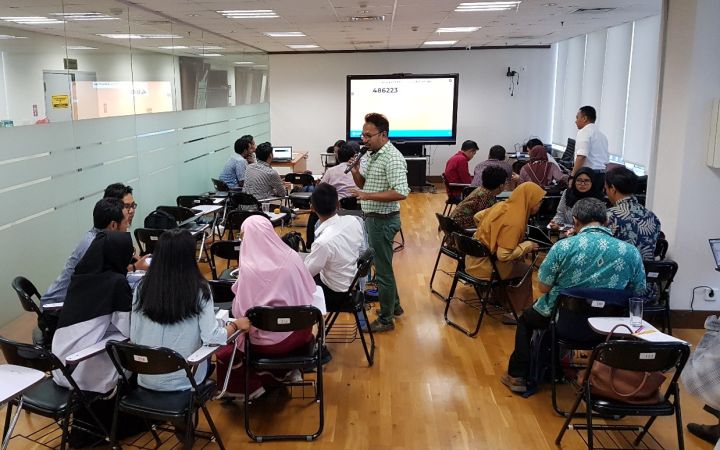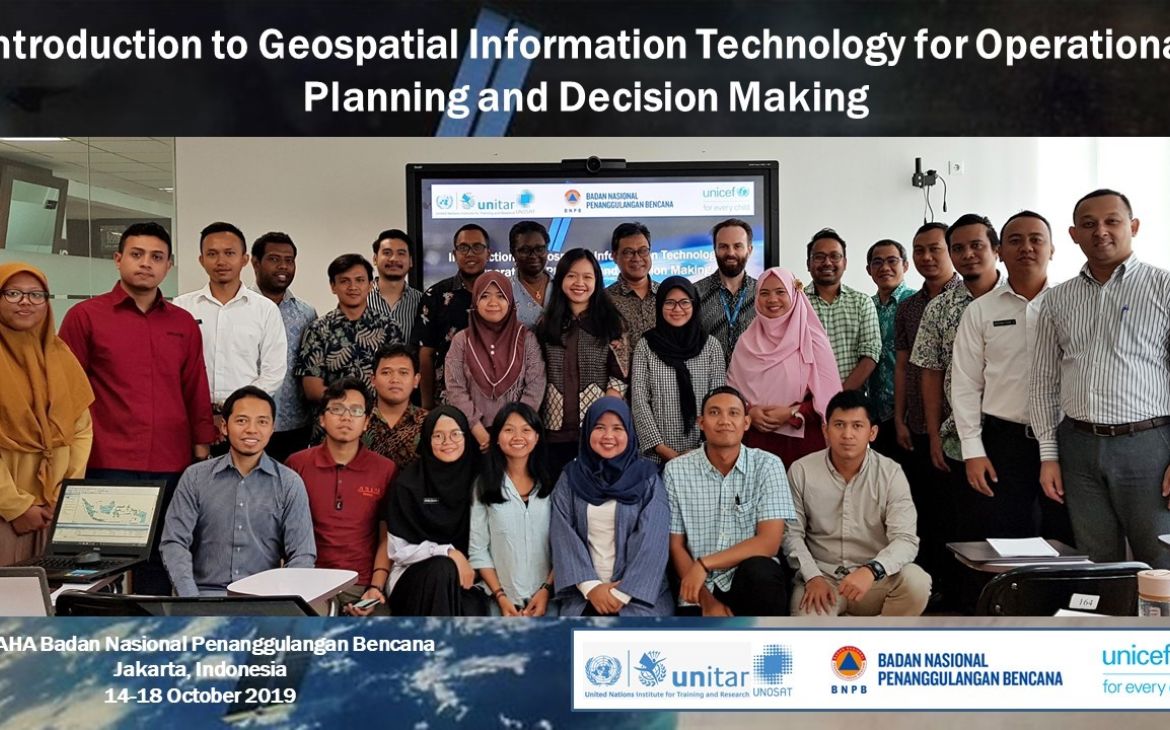14 – 18 October 2019, Jakarta, Indonesia - Indonesia is in one of the world’s most natural disaster-prone areas and is at risk to multiple hazards, including flooding, earthquakes, landslides, tsunami, volcano, and cyclone. Throughout 2018, Indonesia's National Disaster Mitigation Agency (BNPB) recorded almost 2,000 natural disasters that claimed more than 4,000 lives and displaced approximately 3 million people. Disaster events occurred in 2018 also caused severe financial losses up to 3$ billion according to Indonesia’s National Disaster Mitigation Agency. The Government of Indonesia spends $300 to $500 million annually on post-disaster reconstruction.
Geospatial Information Technology (GIT) is a useful tool for the disaster risk management cycle starting from the preparedness phase, mitigation to response, recovery and reconstruction. It is helpful to analyse why and where disasters have happened in the past and indicates why and where disasters might happen in the future. GIT has allowed Jakarta to make informed decisions and to improve the sustainable use of their resources.
UNITAR-UNOSAT and UNICEF offered a 1-week training course on the “Introduction to Geospatial Information Technology for humanitarian operational planning and decision-making” to professionals working on disaster risk reduction in the country.
The aim of this course was to provide participants with concepts and terminology of GIT and to apply Geographic information system (GIS) to analyse spatial data and perform flood monitoring impact analysis. Moreover, the course aimed to teach participants to identify, collect and organize geospatial data, to analyse geospatial methodologies based on real case scenarios to support emergency response and recovery planning operations and lastly to create thematic maps using field data and assessment reports for decision support.
In a summary from the participants, the training was very useful, applicable and informative.
“Overall the training was wonderful, very useful. I have gained a lot of knowledge in the last five days.”
The training was hosted at Indonesian National Board for Disaster Management and attended by 26 participants from government agencies of Indonesia, nominees from the UN agencies such as UNICEF and UNDP, International Federation of the Red Cross (IFRC) and other Non-Governmental Organizations (NGO’s).



